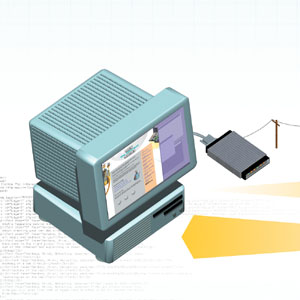Chapter 21. How URLs Work

The web pages and the hosts that make up the World Wide Web must have unique locations so that your computer can locate and retrieve the pages. The unique identifier for a host is called the Internet Protocol (IP) address, and the unique identifier for a page is called the uniform resource locator (URL). A URL functions much like a postal or email address. Just as postal and email addresses list a name and specific location, a URL, or web address, indicates where the host computer is located, the location of the website on the host, and the name of the web page and the file type of each document, among other ...
Get How the Internet Works, Eighth Edition now with the O’Reilly learning platform.
O’Reilly members experience books, live events, courses curated by job role, and more from O’Reilly and nearly 200 top publishers.

